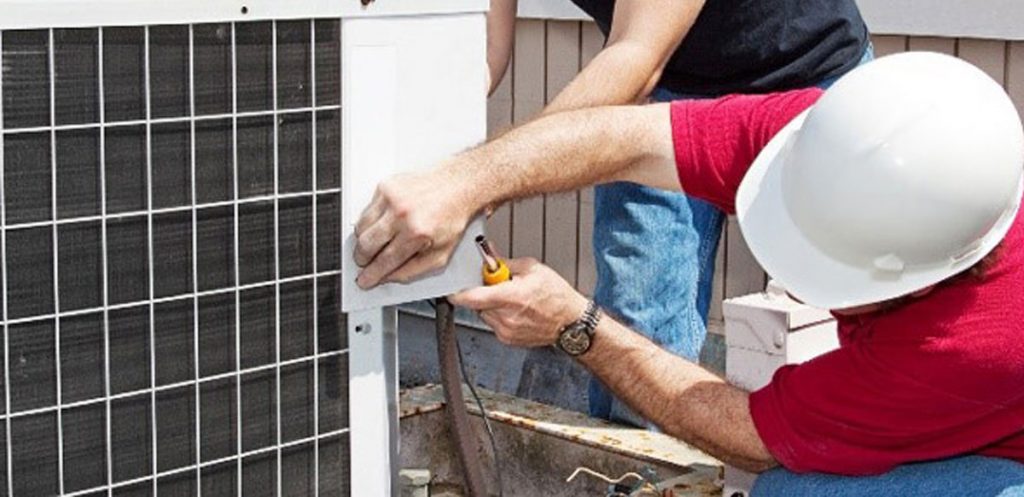Heating ventilation and air conditioning systems technician (HVAC) service requests could spike over the next few months as the United States embarks on summer. According to The Weather Channel, temperatures could reach well above average in the Northern part of the country. 1 Support that a Heating Ventilation Air Conditioning Systems Technician may be called upon to provide to organizations and homes range from repairing refrigerant leaks to replacing compressors to fixing drainage problems.
How To Become A HVAC Technician
Whether you’ve just recently started to consider pursuing a career as an Heating Ventilation Air Conditioning Systems Technician or perhaps you’ve been thinking about it for a while, we’ll share this info to give you a better sense of things to expect when pursuing a career as an Heating Ventilation Air Conditioning Systems Technician.
Requirements To Be An HVAC Technician
The first step on your journey towards becoming an HVAC Technician is to obtain the necessary HVAC training. While not necessarily a requirement, many who pursue a career as an HVAC Technician will enroll in a diploma or certificate program to get training in this field.
Heating Ventilation Air Conditioning Systems Technician
Work that an Heating Ventilation Air Conditioning Systems Technician performs during hot months helps to protect children and adults from dehydration, exhaustion, and hyperthermia. But, a technician doesn’t work in a vacuum. Instead, he or she relies on one or more of the following tools, skills, and technology used in HVAC careers:
Tools – Autoranging, manual and clamp-on multi-meters are used to measure resistance ranges, voltage, current, and insulation. Unlike autoranging multi-meters, manual multi-meters use preset ranges. Measuring instruments are often the first tools that an air conditioning and heating technician uses on a job. According to O*Net, other tools that HVAC technicians may use are power saws, voltage and current meters, screwdrivers, and pressure indicators. 2
Technology – Customer relationship management software is used to track customer records, including customer payments. Database software, photo imaging software, spreadsheets, and word processing software are other technologies that a heating ventilation and air conditioning systems technician uses.
Skills – In addition to strong communication and customer service skills, an HVAC technician needs a broad range of abilities, including installation, quality control analysis, troubleshooting, problem solving, and critical thinking skills. Time management and active listening skills help the technicians to meet customer requests without delay, so that, daily, as many customers as possible can have their equipment installed or repaired. Decision-making skills help technicians to make the best actions that result in cost savings for the customer and the technician’s employer.
Responsibilities – Installing and repairing air conditioners, heaters, and refrigeration systems aren’t the only responsibilities that HVAC technicians have. They may also conduct system inspections, recommend actions that people can take to make their cooling and heating systems more energy efficient, and provide detailed equipment operation instructions to others. They work with government agencies, non-profits, schools, hospitals, large repair shops, manufacturers, businesses, and the general public.
Training – A heating ventilation and air conditioning systems technician generally receives training at a vocational or technical school. After graduation, technicians may receive on-the-job training.
Other titles that an HVAC service technician might be referred by include systems mechanic, air conditioning technician, HVAC mechanic, and HVAC specialist.
Dorsey Schools HVAC Systems Technician Program
At Dorsey Schools, we are ready to connect with you and answer your questions about how our Heating Ventilation Air Conditioning Systems Technician diploma program could help you to gain the education and skills that are generally required of HVAC systems technicians. 3 Important areas covered during the training include maintenance, inspection, troubleshooting, and repair for residential and commercial HVAC systems.
Dorsey Schools’ HVAC systems technician training program is taught in Michigan at the Wayne, MI campus. An externship is built into the training. Students prepare to sit for the EPA Section 608 Type 2 certification exam. Contact us today to speak with one of our experienced admissions representatives.
Let us support your HVAC systems technician training goals. Call us at 1-888-422-1188 to learn how our experienced team can help provide you with important HVAC systems technician training, knowledge, and skills.

